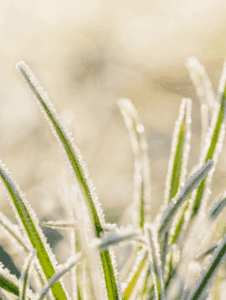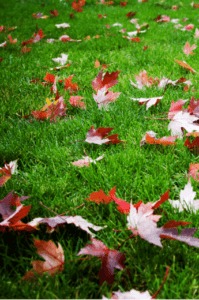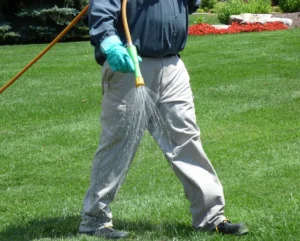The Spotted Lanternfly – Your Tree’s Latest Enemy
What is the spotted lanternfly?
This “invasive species” (scientifically known as Lycorma delicatula) originally from China was accidentally brought to the U.S. in 2014. Since then, it has been attacking fruit plants, ornamental trees, and woody trees in multiple states such as Delaware, New Jersey, Pennsylvania, Virginia, and Ohio.

The spotted lanternfly is a plant-hopping insect belonging to the order Hemiptera, commonly known as “true bugs.” They are about one inch long and have distinctive markings, making them easy to identify. As nymphs (immature stages), they are black with white spots, and as adults, they have colorful wings with black spots and red and yellow underwings, making them visually striking.

Unfortunately, the spotted lanternfly is a threat to various plants, particularly trees, crops, and vineyards especially during their active period in July through December. They feed on the sap of host plants using their specialized piercing-sucking mouthparts, weakening the plant, and causing damage. Additionally, they secrete large amounts of a sugary substance called honeydew, which promotes the growth of sooty mold, further harming the plants. Honeydew and the sooty mold that can result is unsightly and in addition, causes significant cleanup headaches on cars, houses, and other items.
How To Treat Spotted Lanternfly
Efforts to control the spread of spotted lanternflies include the use of insecticides, traps, and targeted measures to disrupt their life cycle and before the egg laying stage in September-November.
ExperiGreen’s Tree & Shrub program is specifically designed to treat and protect your trees from invasive insects just like the Spotted Lanternfly.
Give us a call or click here to learn more about this program so you can sit back and relax this season!
*It’s essential to report any sightings of spotted lanternflies to local authorities or agricultural extension offices to help contain their spread, protect crops, and natural ecosystems.

Join Our Free Lawn Care Newsletter
Stay Up to Date With The Latest News & Updates
* We don’t share your info with anyone ever.








